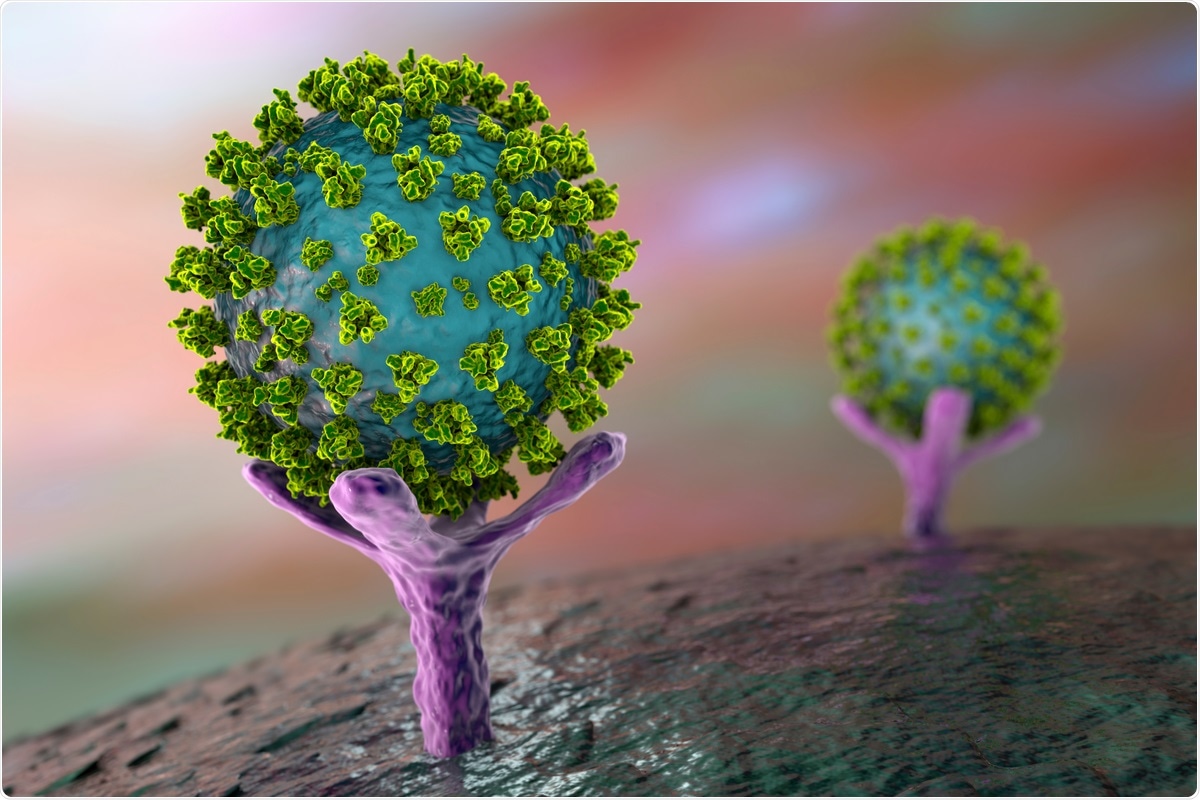Recent studies providing insight into the coronavirus disease 2019 (COVID-19) vaccines reveal mostly negative news. Vaccine-induced immunity falls rapidly over time, with many health administrations beginning to call for booster shots for as many as possible, not just those at risk. New variants continue to emerge, with the Delta variant accounting for over 90% of new cases. Many of these variants carry the D614G mutation, which can help evade both natural and vaccine-induced immune responses.
 Study: Hydrogel-Based Slow Release of a Receptor-Binding Domain Subunit Vaccine Elicits Neutralizing Antibody Responses Against SARS-CoV-2. Image Credit: Kateryna Kon/ Shutterstock
Study: Hydrogel-Based Slow Release of a Receptor-Binding Domain Subunit Vaccine Elicits Neutralizing Antibody Responses Against SARS-CoV-2. Image Credit: Kateryna Kon/ Shutterstock
In a paper available in the journal Advanced Materials, researchers from Stanford University have been attempting to create a hydrogel-based vaccine delivery system that could improve the immune response's strength and duration.
Background
Most vaccines target the spike protein of severe acute respiratory syndrome coronavirus 2 (SARS-CoV-2), as it is responsible for a large degree of the disease's pathogenicity. The spike protein consists of two subunits. S1, which contains the receptor-binding domain (RBD). This is the specific target of most vaccines, and it can bind to multiple receptors. It binds most commonly angiotensin-converting enzyme 2 (ACE2) to permit viral cell entry. The N-terminal domain of the S2 subunit is responsible for membrane fusion.
Slow delivery of antigens can result in a more potent immune reaction. This was originally seen in HIV, where neutralizing antibodies gathered from those vaccinated slowly over two to four weeks showed a 20-30 fold increase compared to convention vaccination. However, slow delivery is difficult to achieve, especially en masse. Osmotic pumps are large and invasive, microneedle patches can damage antigens during the lading process, and few other options exist.
The study
The researchers have developed a new hydrogel platform for vaccine delivery that is easy to manufacture and maintains the aqueous solvation of the subunit antigen proteins. To evade the typical issues with hydrogels (invasive implantation or complicated systems for delivery), they have also developed an injectable polymer-nanoparticle (PNP) hydrogel system that is both inexpensive and scalable.
The immunogenicity of these hydrogel-based vaccines was boosted using clinically de-risked adjuvants, mostly class B CpG ODN1826 (CpG) and Alhydrogel (Alum), as CpG/Alum adjuvant systems are already FDA approved and showed broad utility. Once it was proved that Alum did not interfere with critical injectability and depot formation, it was included in the final system.
The Alum was added to ensure the RBD and negatively charged CpG would remain within the hydrogel to delay the release. The hydrogel was injected into the bottom of a capillary tube, which was then filled with a buffer to confirm the release rate. At specific time points, the buffer was removed, and the levels of CpG and RBD were analyzed. They were released slowly from the gel – with half-lives of around nine days with Alum and 2.5 without. When the system was tested in vivo, the half-life was roughly 5.5 days when released from a hydrogel, compared to 0.5 for standard injections.
To show the efficacy of their new vaccines solution, the scientists compared the injectable PNP hydrogel system with the traditional injection mechanics when exposed to the three most common variants – Alpha, Beta, and Delta. All immunizations included 10ul of RBD, and IgG titers, IgM, and the different IgG subclasses were also analyzed.
Mice vaccinated with the hydrogel system showed the highest IgG titers and consistently stronger immune response across the board than the control vaccinations. A lentiviral SARS-CoV-2 pseudovirus assay was also used to reveal the extent of the neutralizing antibody ability. These revealed higher levels of neutralizing antibodies in mice vaccinated using the hydrogel method than even in serum gathered from previously convalescent humans. At the same time, most vaccines show lower immune responses than those seen in individuals who have previously contracted the disease.
Conclusion
The authors highlight the importance of developing a new method of administrating vaccines, particularly given the results of several recent studies revealing rapidly falling levels of immunity following two doses of most approved vaccines.
This new method could allow significant boosts to immune response without requiring the development of an entirely new vaccine. The results are not just applicable to SARS-CoV-2 either, as this method could be applied to many different vaccines. It would likely be particularly valuable for vaccines for seasonal outbreaks, such as the annual winter influenza outbreak, as these have less time to be developed than most other vaccines.